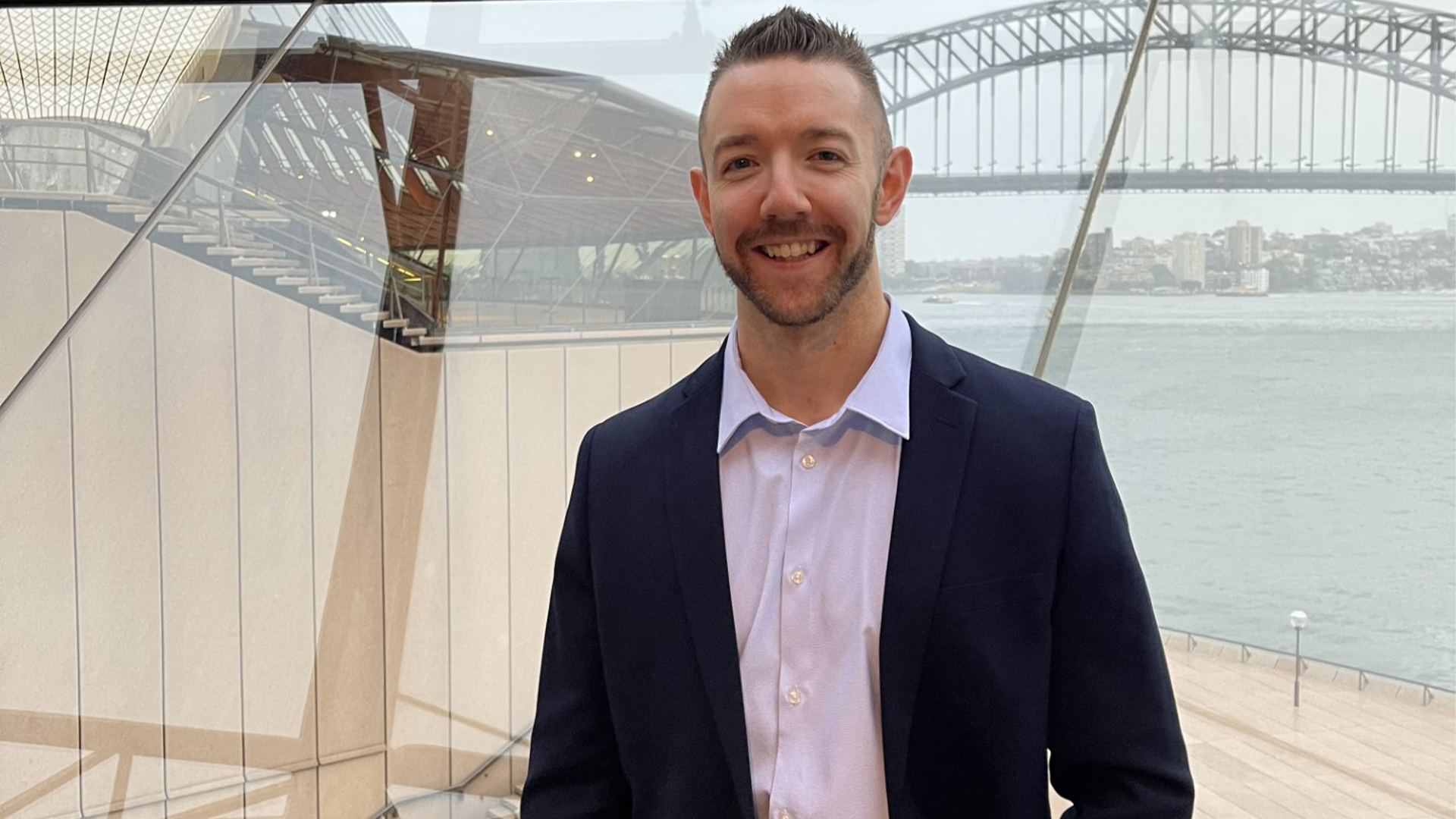The University of Adelaide’s Elder Conservatorium of Music composition student, Benjamin Betelli, sits down to answer some questions about the upcoming World Premiere of his String Quartet No.3. We perform this work for the first time at the Elder Hall Lunchtime Concert on Fri 14 November.
Benjamin, can you start by telling us about your new work — what inspired it, and what can audiences expect to hear?
This work, my String Quartet No. 3 is structured in three movements, each interconnected through recurring thematic material, unifying the work as a whole. The first movement, L’inizio (Italian for The Beginning), establishes an agitated character driven by rapid triplet figurations that weave restlessly throughout the texture against the principal thematic ideas. The second movement, Interludio (Interlude), offers a brief but poignant moment of tranquillity, setting a calm yet contemplative atmosphere. The final movement, Finale, brings the work to a vigorous and rhythmically charged conclusion.
Whilst the piece is not programmatic, the idea I wanted to portray was a story of struggle and renewal, moving through conflict and adversity towards a final sense of hope and resolution. This idea was inspired by the symphonies of Tchaikovsky, particularly No. 4 & 5, where there is a journey from dark to light and thematic material is transformed throughout this process.
Is there a particular idea, image or feeling at the heart of this piece that guided your creative process?
My creative process is highly dependent on composing recognisable returning thematic material. This is the hardest part of any composition – coming up with thematic ideas that are ‘good enough’ that they can last the duration of the work through development and transformations. I knew I wanted a highly energetic and rhythmically exciting work, so I composed the lively last movement first, giving me somewhere to aim for with the first two movements. The themes of the work are almost treated as characters, evolving across the movements in a narrative arc, from their tense and turbulent beginnings to their eventual triumphant transformation.
How did your studies at the Elder Conservatorium shape or influence the way you approached writing this work?
My teacher whilst composing this piece—Charles Bodman-Rae—certainly guided the process in a very helpful manner whilst still allowing me to express my musical ideas in my own musical language. Charles opened my mind to consider many other possibilities or try ideas I perhaps hadn’t thought of. Quite often these were simple changes to consider such as changing the bass notes in sections to create more harmonic interest or displacing rhythmic patterns so ideas didn’t regularly ‘land on the beat’ predictably. A large part of my studies this year has been a significant research project examining Bartok’s String Quartet No. 5, and this has influenced and expanded my own compositional techniques. From my examination of Bartok, I have incorporated into my own work, more frequent time signature changes, cross rhythms and more contrapuntal treatment of ideas.
Are there mentors, classes, or experiences at Elder that have had a big impact on your growth as a composer?
Charles Bodman-Rae has certainly helped me to reach my full potential in my studies. The biggest lessons I have learnt is to try to push my musical ideas as far as I can by trying new techniques and not to settle for the first idea that comes to mind, but also to believe in myself that when I doubt an idea, it can be made to work. One of my biggest highlights this year was the opportunity to hear the Adelaide Symphony Orchestra play one of my works. This was the biggest learning curve for my career, learning how to navigate as a composer with a professional symphony orchestra. Also hearing my piece played live for the first time made me consider how I would change or write for orchestra differently in future.
Who or what are some of your biggest musical influences, and how do they find their way into your music?
I am very passionate about music that follows the classical and romantic traditions and certainly there are many that inspire my musical language and ideas. As I reflect on the piece I have written for the ASQ, I can draw parallels with composers such as Tchaikovsky, Dvorak, Walton, Bartok, Beethoven, Schubert, Wagner and more recently Ross Edwards. These composers have all left a subtle mark on this piece even if only by use of form, treatment of thematic ideas or voicing of parts.
How does it feel to have your music performed by professional musicians, and what are you most excited about next in your creative journey?
Having the ASQ perform by music is certainly one of my biggest career highlights to date. As composers, the biggest thing we want is for our music to reach an audience and share our voice. I feel very privileged and grateful that I have the chance to share my voice and my music through one of the best and most high calibre ensembles in Australia.
Next year I look forward to commencing my masters in composition then eventually my PhD and I always look forward to the next project whether orchestral or chamber.
